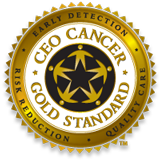Nurse Practitioner-Medical Oncology
Oncology Nurse Practitioner
Position Status: Exempt
General Statement of Duties: Works within a collaborative model to provide quality care and to improve patient outcomes by strengthening continuity of care in all settings for cancer patients, families and staff.
Supervision Received: Reports directly to Chief Clinical Officer
Supervision Exercised: None
Typical Physical Demands: Requires full range of body motion including handling and lifting patients, manual and finger dexterity and eye-hand coordination. Requires standing and walking for extensive periods of time. Occasionally lifts and carries items weighing up to 100 lbs. Requires corrected vision and hearing to normal range. Requires working under stressful conditions or working irregular hours. Requires exposure to communicable diseases or bodily fluids.
Typical Working Conditions: Frequent exposure to communicable diseases, toxic substances, ionizing radiation, medicinal preparations and other conditions common to a clinic environment.
Examples of CLINICAL Duties: (This list is not all inclusive)
- Perform and document comprehensive medical and psychosocial health histories and examinations.
- Gathers data, conducts initial history and physical examination, and formulates and implements treatment plans in collaboration with physician.
- Orders and interprets diagnostic studies related to the patient’s plan of care and response to treatment.
- Provides follow-up care on an inpatient and outpatient basis.
- Initiates consultation with specialists as indicated.
- Recognizes oncology-related problems and initiates interventions.
- Identifies treatment-related toxicities and initiates interventions.
- Demonstrates expertise in symptom management.
- Assesses ill patients and develops plan of care in collaboration with MD
- Monitors and adjusts patient medications and treatments according to protocols.
- Diagnoses and treats common oncology associated illnesses.
- Manages telephone calls related to emergency situations, symptom management, and psychosocial and family concerns.
- Provides continuity of care across settings (hospital, home, home health, skilled nursing, hospice and rehabilitation).
- Supervises chemotherapy administration in office setting.
- Collaborates with physician and chemotherapy infusion nurse to schedule and administer chemotherapy.
- Writes chemotherapy orders and evaluates protocols in collaboration with physician.
- Provides psychosocial counseling and support to patients and families and makes referrals to social work or community agencies as necessary.
- Performs various procedures: bone marrow biopsy and aspirate, removal of picc, administration of intrathecal chemotherapy.
- Evaluates effectiveness of integrative therapies and their use in complementing medical treatment.
- Demonstrates knowledge of cancer risk factors, diagnoses, disease processes, and treatment options.
- Evaluates patient intervention outcomes.
- Provides Genetic Pretest Counseling
- Coordinates discharge plans, follow up, home health, and outpatient prescriptions.
- Assists with hospital rounds and management of hospitalized patients.
- Participates in daily huddles/conferences with team to facilitate communication and coordination of care.
- Provide survivorship care to patients who have completed chemotherapy
Education Responsibilities:
- Provides information on disease, treatment, health promotion, and disease prevention to patients and families.
- Educate professional staff through consultations and presentations.
- Evaluates patient, nursing and community educational programs and materials and act as a resource.
- Participate in multidisciplinary committees.
- Educate patients and caregivers on disease process and chemotherapy
Research Responsibilities:
- Demonstrate knowledge of the research process.
- Collaborate with investigators, protocol nurses, and physicians to support and promote research.
- Recruits patients for clinical trials.
- Reviews, disseminates, and incorporates research findings into clinical practice.
Education:
- Graduate of a school of nursing.
- Graduate of an approved Nurse Practitioner Program (MS preferred)
- Authorized to Issue prescriptions pursuant to Section 6902 (3) (b) of the Education Law having completed instruction satisfactory to the department in New York State and Federal laws and regulations relating to prescriptions and record keeping and in accordance with the practice agreement and practice protocols.
Experience:
Five years professional nursing experience in a hospital or clinic setting with 1-2 years in a nurse practitioner role or 1-2 years in an Oncology Nurse Practitioner role.
Certificate/License:
Possession of a NY State Registered Nurse license. ANCC or ANA certification and NYS Nurse Practitioner Certification.





